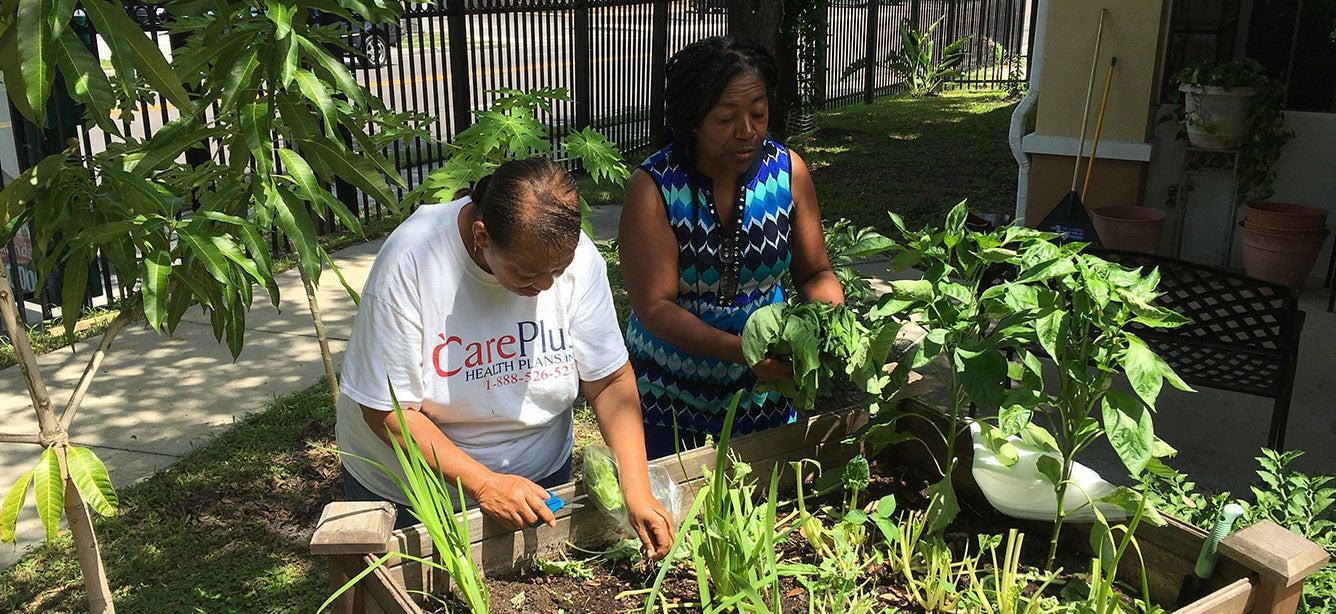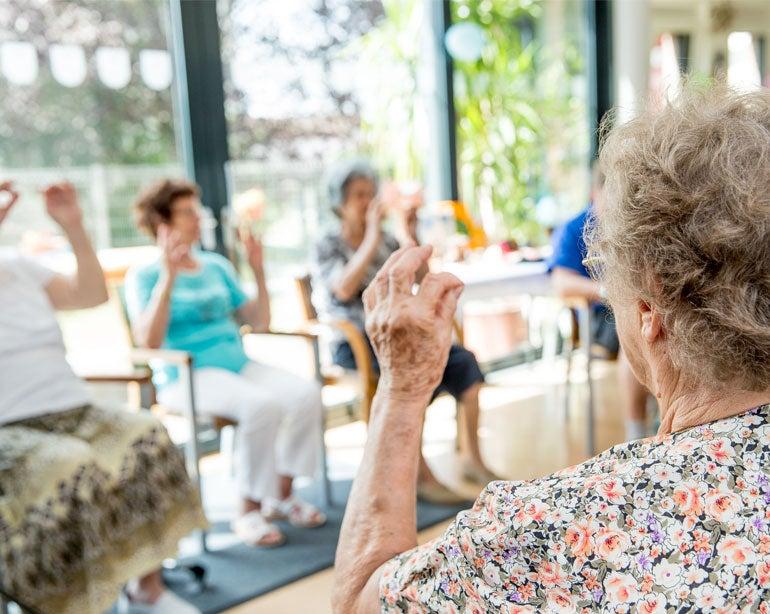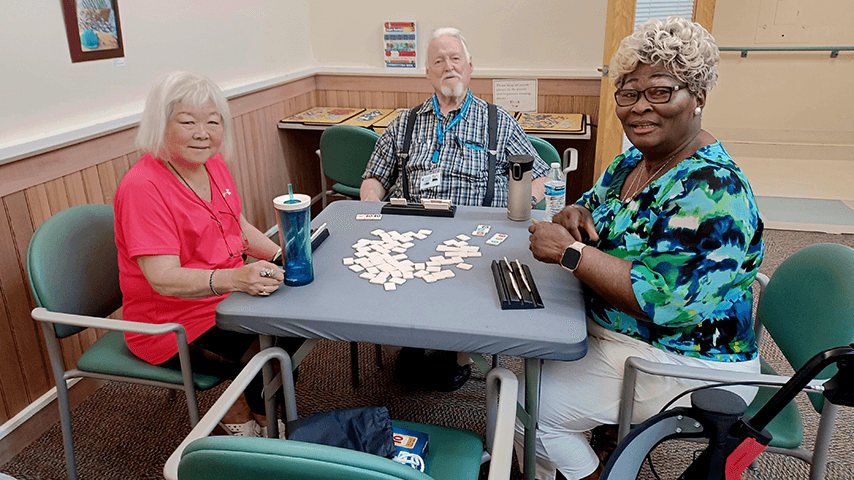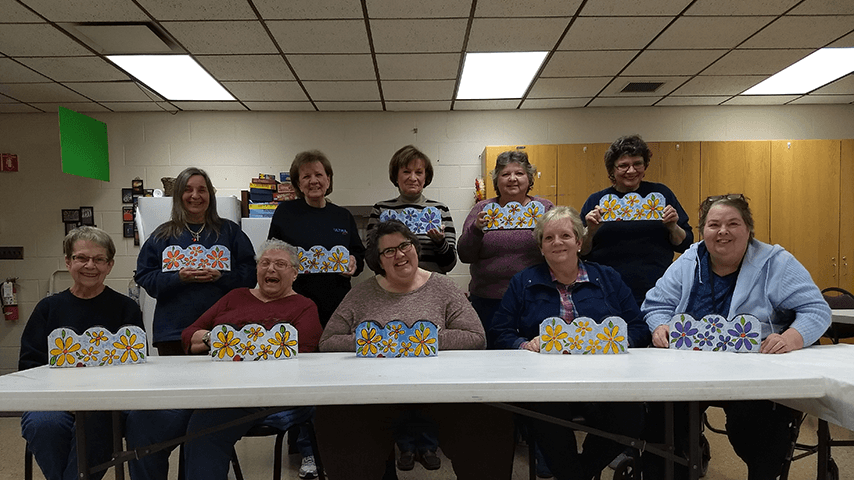Senior Center Spotlight: Hillsborough County Senior Centers are Partners in Research to Address Mental Health Concerns of Older Adults
7 min read

The effectiveness of a program designed to improve the mental health of older adults is the focus of a partnership between senior centers in Hillsborough County, Florida, and the University of South Florida (USF), Department of Mental Health Law & Policy.
Hillsborough senior centers are part of a USF research study to pilot test the Do More, Feel Better (DMFB) Program. The National Institute of Mental Health is funding the multi-state study, with the goal of improving the mental wellness of older adults through positive activities. Specifically, this study is testing the effectiveness of older volunteers compared to professionals in steering fellow seniors with depression, anxiety, loneliness, and other mental health concerns toward activities that can improve their quality of life.
How Hillsborough senior centers expanded participation in mental wellness program
The pilot program began during the pandemic at the Brandon Senior Center and has expanded to all centers in Hillsborough County since 2020. Mary Jo McKay, Nutrition and Wellness Manager for Hillsborough County, knew that “this program was starting at a good time because we were well aware of the large number of older adults who had lost loved ones, friends, and other connections during the pandemic.
Plus, the screenings conducted at Brandon Senior Center identified many older adults with depressive symptoms, especially among those not fully engaged in senior center activities,” McKay said. “We knew we needed this program.”
What goes on at Hillsborough senior centers?
The government of Hillsborough County, located in coastal central Florida, supports seven senior centers and 15 dining sites located throughout the county.
Like many senior centers across the U.S., Hillsborough senior centers provide a wide array of social activities and events, health and wellness programs, lunch, educational classes, games, transportation, and caregiving services that help older adults with all levels of physical abilities get the most out of life. These centers are a place to gather, learn, and enjoy free activities that are designed for today’s active adults aged 50 and over. Men typically get together to play games like billiards and dominoes, while women tend to gather for the physical fitness programs, arts activities, and games like mahjong.
The largest centers see about 100 participants every day, down from about 250 pre-pandemic. The average age of participants is 70, with ages ranging from 55 to over 100.
Striving to improve the mental health of senior center participants
DMFB has been conducted in English and will launch in Spanish in late spring 2023. Seniors who attend the centers, as well as those from housing sites and the community at large, are eligible to be enrolled after an initial screening is conducted at a senior center. Approximately 4,000 seniors have been contacted, with the county communications department helping in the recruitment effort by publishing articles about the study in local media.
After the initial screening, potential participants are assessed by the USF team to determine if they meet the eligibility criteria. Once older adults are deemed eligible, they are paired at random with a DMFB coach. Coaches are required to complete a training program and then are assigned older clients to work with under the supervision of the USF research staff. Through nine weekly scripted virtual sessions, coaches build rapport with the clients and help them plan physical, social, or recreational activities. Some of the emotionally therapeutic pursuits include gardening, walking, calling friends, reading, engaging in county Aging Services programs, or anything else the client may be interested in pursuing.
McKay reported that the program has made such a difference in participants’ lives, with many taking up new activities and some bringing those, like gardening, to the senior centers. She is certain the program will continue after the pilot project has ended. She believes the simplicity of the program makes it easy to replicate.
Peer coaches play a vital role
Enid Rubio, one the senior coaches who also experiences depression and anxiety and was a previous Do More, Feel Better participant, loves the program for many reasons.
“The program makes me feel useful and I realize that I am not the only one who has had difficult times,” Rubio said. “The program makes me more resilient, and I can show that to other older adults. There is always a light at the end of the tunnel.”
Rubio tells her clients that “you don’t have give up when we have our ups and downs. The more you do, the better you feel.
So many elders do not have anyone so when we reach them through the program, we are reducing their loneliness.”
Rubio usually works with four to five clients through individual meetings via Zoom for nine weeks. First, she breaks the ice, spending time to get to know one another. She also explains that she is not a clinician, but that she is able to offer her experience through the DMFB program. She has found that some clients expect advice, but coaches cannot do that; instead, she discusses options with her clients.
The DMFB program provides structure for the conversations yet allows flexibility depending on the client’s situation. This flexibility also pertains to technical roadblocks, forgetting meetings, and conflicts with doctors’ appointments. She has found many clients are lonely, in despair, anxious, and have much uncertainty about if and when things will go back to the way things were before the pandemic started.
Rubio said she wishes that the program could be provided all across the U.S. because “mental health in adults has been put on the back burner and we were drowning. Some came afloat but not all.” She tells her clients, “At this age we should all be happy, dancing, and doing whatever we want to do. We’ve earned it.”
Tips for senior center involvement in research
McKay recommends that senior centers get involved in research efforts with local universities or colleges when the opportunity arises. Senior centers can also approach universities with ideas for research efforts.
Her research experience with USF has been a positive one. She found that the USF team understood how busy the senior center staff are, and the researchers did not require significant work by the staff. The centers have monthly meetings with USF and find out how they are doing. The senior centers are excited to be involved with the pilot because they see the benefit to their participants while recognizing that the program, if replicated elsewhere, can benefit many more older adults.
McKay offers the following advice to other centers interested in partnering to conduct research:
- Clearly define the role and responsibilities of the senior center team and research team members
- Find a cheerleader or champion to keep the team excited about the program and research
- Keep the senior center team involved with the project with updates on progress, including regular meetings with the research team that also address any challenges that may be happening such as technology access and literacy which was a problem at the beginning of the program
- Collect success stories to keep the momentum among the staff and coaches strong
Still not a member of the National Institute for Senior Centers? Join today, membership is free.
If your center has engaged in a recent study or assessment, we’d love to hear about it. And if you haven't already, we'd encourage you to join the National Institute of Senior Centers (NISC). Free to all senior centers (and their personnel), NISC supports senior centers with best practices and innovations in programming, as well as networking and training opportunities. Ask for help, leverage NISC resources, or share your successes like the Seasoned Survivors Center. Find out how you can become a NISC Affiliate today.
Acknowledgements: Many thanks to Mary Jo McKay, Nutrition and Wellness Manager, Aging Services Dept, Hillsborough County, and Enid Rubio, Do More, Feel Better Coach, for their contributions to this article.
Photo courtesy Hillsborough County senior centers




